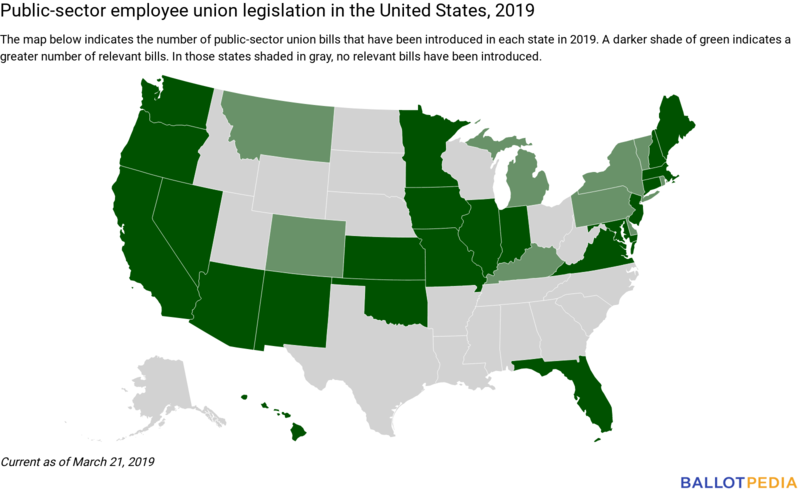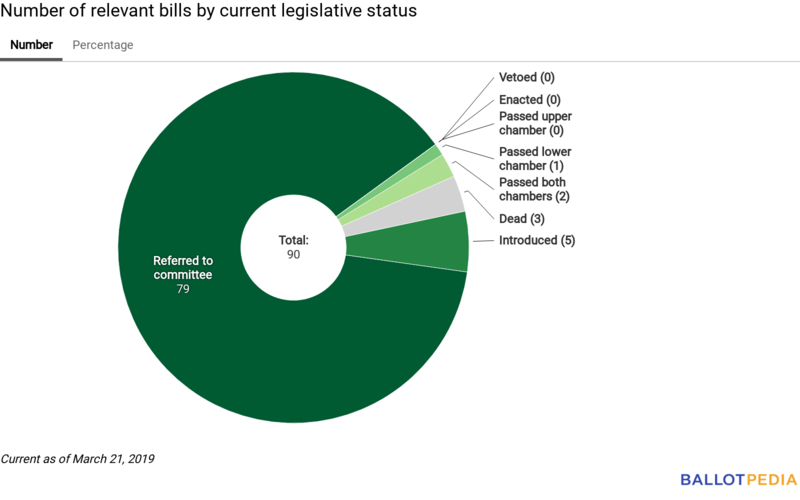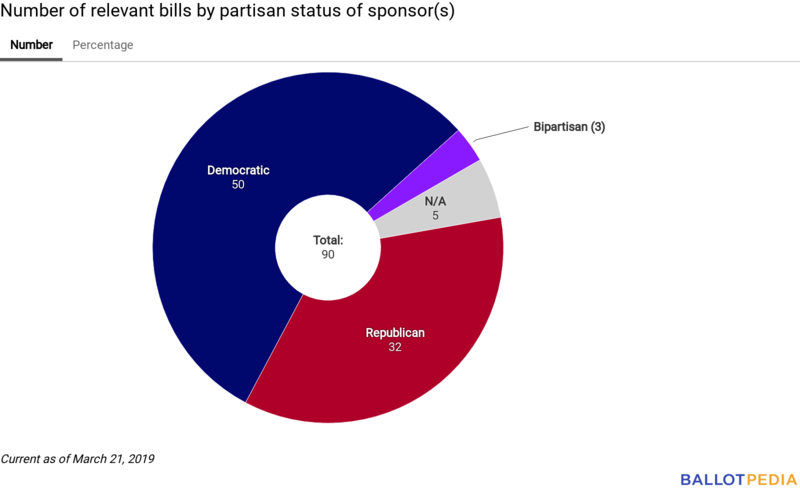Help us improve in just 2 minutes—share your thoughts in our reader survey.
Union Station: March 22, 2019
Welcome to Union Station, our weekly newsletter that keeps you abreast of the legislation, national trends, and public debate surrounding public-sector union policy. This week, we take a closer look at an Illinois case in which a federal judge ruled that public-sector unions do not owe refunds for previously paid agency fees.
Federal judge finds public-sector unions do not owe refunds for previously paid agency fees
On March 18, Judge Robert Gettleman, of the U.S. District Court for the Northern District of Illinois, ruled that public-sector unions cannot be required to refund agency fees paid to them before the Supreme Court issued its decision in Janus v. AFSCME. In that ruling, the high court held that public-sector unions cannot compel non-member workers to pay agency fees covering the costs of non-political union activities. (Sources: Cook County Record, Reuters)
- Who are the parties to the suit? The plaintiff is Mark Janus, a former Illinois state government worker who was also the plaintiff in Janus v. AFSCME. The defendant is the American Federation of State, County, and Municipal Employees (AFSCME), the union to which Janus paid agency fees when he worked for the state.
- What is at issue?
- The Supreme Court’s 2014 decision in Harris v. Quinn struck down an Illinois statute compelling a specific class of home health care workers to pay fees to the Service Employees International Union. In this case, the workers in question were not employed directly by the state, but did receive state funds indirectly via subsidy payments. Janus argued that Harris suggested the ultimate unconstitutionality of agency fees. Janus also argued unions were not acting in good faith when they continued to collect agency fees and, therefore, should be held liable for refunds.
- Gettleman, who was appointed to the court by President Bill Clinton (D) in 1994, rejected this argument: "Defendants' action [sic] were in accord with a constitutionally valid state statute. Nothing presented by plaintiff prevents application of that defense to defendant AFSCME. Defendant AFSCME followed the law and could not reasonably anticipate that the law would change.”
- More about Janus v. AFSCME: Generally, members of an employee union pay fees to that union. These fees support the union's activities, which can include collective bargaining and contract administration, as well as political activities, such as lobbying. Some public-sector employees do not wish to join a union, and some are opposed to unions' political activities. In 1977, the Supreme Court ruled in Abood v. Detroit Board of Education that employees cannot be required to give financial support to a union's political activities. However, the court found that it was not a violation of employees' First Amendment rights to require them to pay fees supporting union activities, such as collective bargaining, that benefitted them. Janus overturned the Abood decision.
The big picture
Number of relevant bills by state
We are currently tracking 90 pieces of legislation dealing with public-sector employee union policy. On the map below, a darker shade of green indicates a greater number of relevant bills. Click here for a complete list of all the bills we're tracking.
Number of relevant bills by current legislative status
Number of relevant bills by partisan status of sponsor(s)
Recent legislative actions
Below is a complete list of legislative actions on relevant bills since the beginning of the year. Bills are listed in alphabetical order, first by state and then by bill number.
- Connecticut HB06935: This bill would require public employers to provide unions with access to new employee orientations.
- Referred to Joint Committee on Labor and Public Employees March 20.
- Connecticut SB00064: This bill would prohibit employers from requiring employees to attend or participate in meetings concerning an employer's views of religious or political matters, including matters related to unions.
- Filed with legislative commissioners' office March 18.
- Kansas SB175: This bill would ensure that a public employee can rescind authorization for dues deductions.
- Senate hearing March 18.
- Montana HB323: This bill would prohibit employers from requiring employees to become or remain union members as a condition of employment. This bill would also disallow payroll deductions for non-member fees paid to unions.
- Senate agreed to House amendments March 19.
- New Hampshire SB148: This bill would require public employers to notify hirees of their right to join or refrain from joining a union. The notification would also include the estimated annual cost of joining a union.
- Commerce Committee hearing March 19.
- Oregon HB2016: This bill would require public employers to grant paid time to employees participating in certain union activities. It would also require employers to furnish unions with access to employees.
- Business and Labor Committee work session March 18.
- Pennsylvania HB870: This bill would allow public-sector workers to bargain independently or form unions separate from the certified bargaining unit.
- Referred to Labor and Industry Committee March 18.
- Washington HB1575: This bill would declare that public employers and public-sector unions are not liable for claims involving agency fees paid to unions before Janus.
- Senate Labor and Commerce Committee hearing March 21.
- Washington SB5623: This bill would declare that public employers and public-sector unions are not liable for claims involving agency fees paid to unions before Janus.
- Placed in "X" file March 18 (i.e., the bill is no longer eligible for consideration).
See also
| |||||||||||||||||||||||





